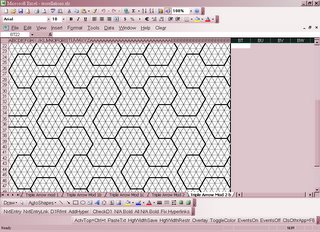Sept. 28, 2006 — Scientists have been trying to figure out for years why a buildup of atmospheric methane, the second most abundant greenhouse gas, slowed dramatically in the last decade after levels had nearly tripled since preindustrial times. Now, an international team of scientists, including two at the NOAA Earth System Research Lab in Boulder, Colo., attributes the 15-year lull to a temporary decline in industrial emissions during the 1990s, along with a slowdown in wetland emissions during prolonged droughts.
The good news is that we have finally found a negative feedback effect on global warming. The bad news is that it's caused by drought, which leads to starvation for humans and other animals.
A negative feedback effect is when an increase in one variable causes an effect that causes the variable to decrease. Since global warming causes an increase in droughts, this would be a negative feedback effect.
Likewise, a positive feedback effect is when an increase in a variable has an effect that causes the variable to increase even more. Eg., global warming thaws permafrost, which causes it to release methane that has been captured in the ice; since methane is a greenhouse gas, it adds even more to global warming. So in this case, we have both kinds, both involving methane. Kinda neat, if you forget about the effects on our planet and its inhabitants.
=





